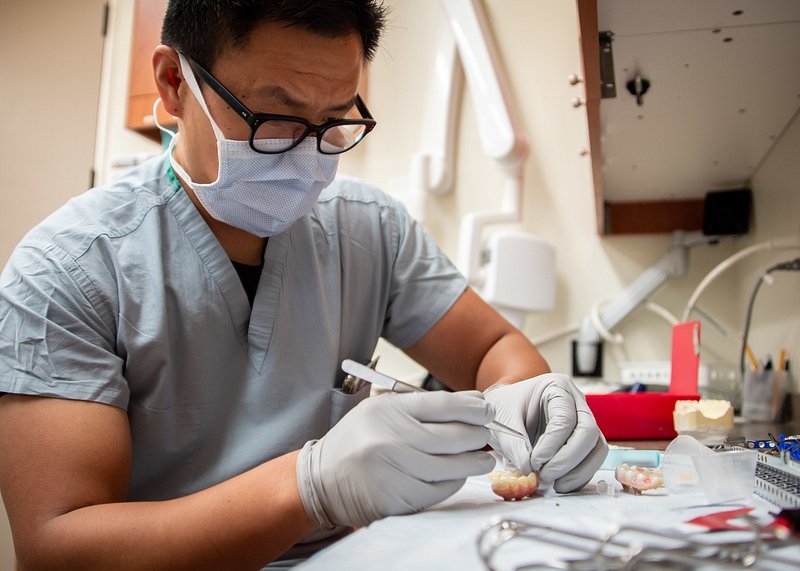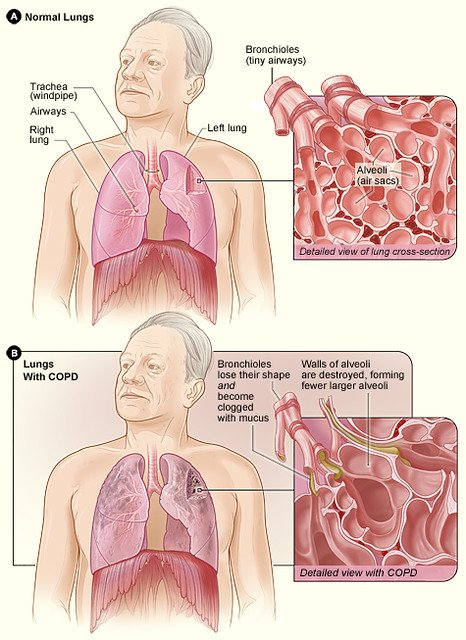Now Reading: The Importance of Mental Health in Survival Medicine
-
01
The Importance of Mental Health in Survival Medicine

The Importance of Mental Health in Survival Medicine
When it comes to the realm of survival medicine, there is no denying that physical health takes center stage. The ability to treat wounds, set broken bones, and administer life-saving medications is undoubtedly crucial in dire situations. However, often overlooked yet equally critical is the aspect of mental health. In the face of wilderness emergencies, natural disasters, or even extended periods of isolation, the state of our minds plays a pivotal role in our overall ability to persevere and overcome. So, let us embark on a journey to uncover the intricacies of mental health in survival medicine, exploring its undeniable importance and the invaluable impact it has on our capacity to endure.
Table of Contents
- Understanding the Link between Mental Health and Physical Well-being
- Recognizing the Psychological Impact of Emergencies on Survivors
- Effective Strategies for Promoting Mental Resilience in Survival Medicine
- Addressing Mental Health Needs through Comprehensive Care
- Building a Supportive Environment for Mental Health in Emergency Situations
- Q&A
- Final Thoughts

Understanding the Link between Mental Health and Physical Well-being
There is an undeniable connection between mental health and physical well-being, intertwining two crucial aspects of our overall health. Our emotional state has a profound impact on our physical health, and vice versa. When we experience stress, anxiety, or sadness, our bodies react in various ways, sometimes leading to physical ailments or exacerbating existing conditions.
Physical manifestations of poor mental health:
- Headaches or migraines
- Stomachaches or digestive issues
- Tense muscles, body aches, or joint pain
- Weakened immune system, increasing susceptibility to illnesses
- Lack of energy or chronic fatigue
Mental health benefits of physical well-being:
- Improved mood and reduced symptoms of depression or anxiety
- Enhanced cognitive function and memory
- Increased self-esteem and self-confidence
- Boosted stress resilience and ability to cope with challenges
- Better sleep quality
Recognizing the link between mental health and physical well-being is vital for leading a balanced and healthy life. It emphasizes the importance of taking care of both our minds and bodies. Engaging in regular exercise, practicing mindfulness and stress-reducing techniques, maintaining a nutritious diet, and seeking support from mental health professionals are just a few steps we can undertake to nurture this interconnected relationship and improve our overall well-being.

Recognizing the Psychological Impact of Emergencies on Survivors
In the wake of emergencies, the psychological well-being of survivors cannot be overlooked. The traumatic experiences they endure often leave deep scars that require understanding and support.
Stress and anxiety are common psychological consequences experienced by survivors. The uncertainty of emergencies can lead to profound fear and worry. Survivors may struggle to regain a sense of safety and security, often plagued by intrusive thoughts and nightmares. It is crucial to provide them with resources and interventions that promote resilience and healing.
Recognizing the psychological impact
- Post-Traumatic Stress Disorder (PTSD): Many survivors of emergencies develop PTSD, a severe anxiety disorder that can result in flashbacks, exaggerated startle responses, and avoidance of triggering situations. Identifying symptoms and providing professional therapeutic care is essential for their recovery.
- Depression and Grief: The loss of loved ones, homes, and belongings during emergencies often leads to deep sadness and prolonged grief. Understanding the mourning process and offering psychological support is crucial for survivors to navigate these emotions and find hope for the future.
- Survivor’s Guilt: Some individuals who survive emergencies may struggle with guilt, questioning why they survived when others did not. This emotional burden can be overwhelming. Compassionate counseling and group therapy can help survivors work through these complex feelings.
In conclusion, emergencies take a toll on survivors’ mental well-being. Recognizing and addressing the psychological impact is a crucial step towards their recovery. By offering support, therapy, and resources tailored to their needs, we can help survivors overcome the hurdles on their path to healing and resilience.

Effective Strategies for Promoting Mental Resilience in Survival Medicine
When facing challenging situations in survival medicine, it is crucial to cultivate and maintain mental resilience. The ability to stay composed, adapt, and bounce back from adversity plays a vital role in ensuring the well-being of both the patient and the medical practitioner. Here are several effective strategies to promote mental resilience:
- Practice self-care: Taking care of oneself is paramount in maintaining mental resilience. Prioritizing activities such as exercise, meditation, and proper nutrition can help reduce stress levels and enhance overall mental well-being.
- Seek support: Connecting with like-minded individuals and building a support network can provide invaluable emotional support. Engaging in regular discussions, sharing experiences, and seeking advice allows for the exchange of ideas and coping mechanisms in the challenging field of survival medicine.
- Cultivate a positive mindset: A positive mindset is a powerful tool for building mental resilience. Focusing on strengths and accomplishments, practicing gratitude, and reframing negative thoughts can help navigate difficult situations with optimism and determination.
- Develop problem-solving skills: Being prepared with problem-solving skills enables medical practitioners to approach complex situations with confidence. Taking the time to analyze challenges, break them down into smaller manageable tasks, and adapt to changing circumstances allows for effective decision-making and stress reduction.
- Become adaptable: Flexibility and adaptability are key to mental resilience. Embracing change, learning from failures, and being open to new approaches allows survival medicine practitioners to navigate unpredictable situations with ease.
By incorporating these strategies into daily practice, medical professionals can promote mental resilience in the field of survival medicine, ensuring the best possible outcomes for both themselves and their patients.

Addressing Mental Health Needs through Comprehensive Care
Comprehensive Care for Mental Health: A Holistic Approach
When it comes to addressing mental health needs, it is essential to prioritize comprehensive care that goes beyond the traditional methods. By embracing a holistic approach, we can provide individuals with a complete support system that focuses on their overall well-being.
Here are some key aspects of comprehensive care for mental health:
- Tailored Treatment Plans: Every person’s journey towards mental health recovery is unique, and it is crucial to create tailored treatment plans that cater to their specific needs. By taking into account their personal experiences, strengths, and challenges, we can design a plan that acknowledges their individuality and helps them navigate their path to recovery.
- Integrated Services: Integrating different therapeutic services is crucial for comprehensive mental health care. This can include a range of interventions such as counseling, medication management, support groups, and occupational therapy. By combining these services, we can provide a more holistic and well-rounded approach to address the diverse needs and circumstances of individuals.
- Emphasis on Prevention and Education: Preventative measures and education play a vital role in comprehensive mental health care. By raising awareness, promoting mental health literacy, and providing individuals with the tools to proactively manage their mental well-being, we can empower them to take charge of their mental health before issues escalate.
- Collaborative Approach: Addressing mental health needs requires a collaborative effort, involving not only mental health professionals but also individuals, families, and communities. Building a network of support and encouraging open communication plays a vital role in achieving comprehensive care that encompasses the social, emotional, and psychological aspects of mental health.
By embracing a comprehensive approach to mental health care, we can improve outcomes, promote well-being, and empower individuals to lead fulfilling lives. Let us continue to strive towards a future where the mental health needs of everyone are adequately addressed and supported.
Building a Supportive Environment for Mental Health in Emergency Situations
During emergency situations, such as natural disasters or crises, it is essential to prioritize the mental health and well-being of individuals affected. Creating a supportive environment can significantly contribute to their recovery and resilience. Here are some key strategies to consider:
- Open communication: Establishing clear lines of communication is crucial. Ensure that affected individuals have access to reliable information about the situation, available resources, and support services.
- Empathy and active listening: Responding to emotional distress with empathy and active listening can provide comfort and help build trust. Encourage individuals to express their concerns, fears, and anxieties openly, offering them a safe space to share their experiences.
- Psychological first aid: Train emergency responders and volunteers in psychological first aid techniques. By providing immediate emotional support and basic coping strategies, they can help individuals manage their distress and foster resilience.
- Education and awareness: Conduct educational campaigns to raise awareness about mental health and promote self-care practices during emergencies. This can help dispel stigma, encourage help-seeking behavior, and empower individuals to prioritize their mental well-being.
- Safe spaces: Establish designated safe spaces where affected individuals can seek solace, connect with others, and engage in activities that promote relaxation and emotional healing.
- Collaboration and partnerships: Foster collaboration among community organizations, healthcare providers, and mental health professionals to develop a comprehensive support network. By pooling resources and expertise, a more holistic approach towards mental health can be achieved.
By implementing these strategies, we can create a supportive environment that not only aids in the immediate recovery of individuals in emergency situations but also lays the foundation for long-term mental well-being.
Q&A
What impact does mental health have on survival medicine?
Mental health plays a crucial role in survival medicine as it affects how individuals perceive and cope with stressful situations, impacting their decision-making and overall well-being in a crisis.
Why is addressing mental health important in survival situations?
Addressing mental health in survival situations is crucial because it helps individuals maintain emotional stability, make rational decisions, promote teamwork, and improve overall resilience, all of which are essential for survival.
How does stress affect the effectiveness of survival medicine?
Stress can greatly hinder the effectiveness of survival medicine by impairing cognitive functions, decreasing focus and attention, and increasing the risk of errors in critical decision-making and performing medical procedures.
What are some common mental health issues faced in survival situations?
Common mental health issues in survival situations include anxiety, post-traumatic stress disorder (PTSD), depression, and panic disorders, which can significantly impact an individual’s ability to adapt and function in challenging circumstances.
How can mental health be supported in survival medicine?
Supporting mental health in survival medicine involves creating a supportive environment, promoting open communication, providing psychological first aid, offering stress management techniques, and ensuring access to mental health resources and support systems.
Why is self-care important for mental health in survival medicine?
Self-care is vital for mental health in survival medicine as it helps individuals reduce stress, maintain a positive mindset, and prevent burnout. Prioritizing self-care enables individuals to better adapt to challenging situations and provide effective medical assistance.
How can teamwork impact mental health in survival medicine?
Teamwork positively impacts mental health in survival medicine by fostering a sense of belonging, collaboration, and shared responsibility. Working together not only enhances individual well-being but also improves overall morale and efficiency.
What role does resilience play in mental health during survival situations?
Resilience is paramount in maintaining mental health during survival situations. It allows individuals to bounce back from adversity, adapt to new challenges, and maintain a positive outlook, ultimately enhancing their ability to provide crucial medical care.
Are there any specific strategies or techniques to promote mental health in survival medicine?
Promoting mental health in survival medicine can be achieved through various strategies such as practicing mindfulness, maintaining social connections, ensuring adequate rest and nutrition, engaging in stress-reducing activities, and seeking professional help when needed.
Final Thoughts
As we conclude this exploration into the crucial role of mental health in survival medicine, we are reminded that the greatest challenges we face in times of crisis extend far beyond physical ailments. The complexity of human resilience is not solely dependent on bandages and antibiotics, but equally reliant on the pillars of mental fortitude and emotional well-being.
In the realm of survival medicine, we discover that treating the mind is just as essential as treating the body. A holistic approach is imperative, where mental health is embraced as an integral part of healthcare, as vital as tending to physical injuries. For when the mind is at peace, resilience thrives, and true healing can commence.
We find solace in recognizing that mental health is not a solitary journey but a collective responsibility. As medical practitioners, emergency responders, and caregivers, we must champion the compassionate recognition and treatment of psychological distress, knowing that mental well-being transcends age, gender, or social standing.
Uncovering innovative strategies to address mental health within the context of survival medicine is a quest that will forever evolve. Our commitment to tearing down stigmas, nurturing resilience, and fostering a safe space for emotional growth sets in motion a brighter future, where mental health becomes a cornerstone of comprehensive healthcare, both in times of crisis and in day-to-day life.
Let us remember that the robustness of the human spirit lies not only in physical endurance but also in the depths from which we draw courage, resilience, and empathy. By placing mental health on an equal pedestal to physical health, we forge a path towards a society that values the invaluable essence of every individual, seeing them as a composite of mind, body, and soul.
May this exploration serve as a reminder that when we prioritize mental health within the realm of survival medicine, we unlock the untapped potential that lies within each one of us. Together, let us foster a world where no one battles alone, where the light of hope shines brightest amidst the darkest of circumstances. For mental health is the compass that guides us towards collective survival, enabling the triumph of the human spirit against all odds.
As an affiliate, my content may feature links to products I personally use and recommend. By taking action, like subscribing or making a purchase, you’ll be supporting my work and fueling my taco cravings at the same time. Win-win, right?
Want to read more? Check out our Affiliate Disclosure page.





